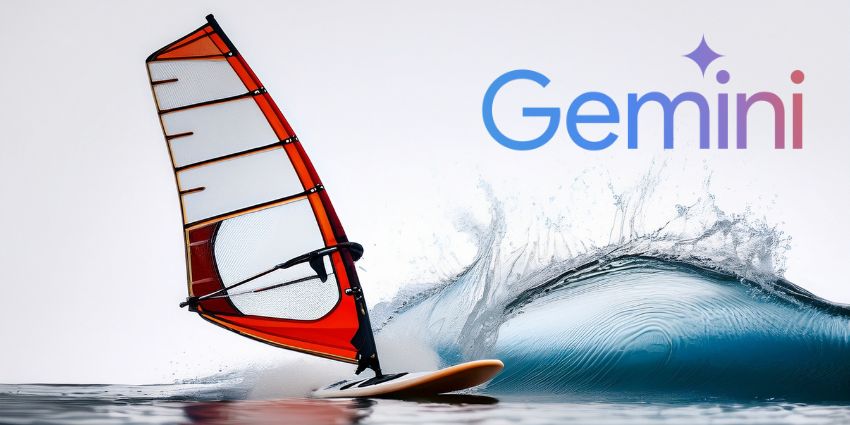Google has executed a calculated $2.4 billion talent acquisition and licensing deal with Windsurf, securing CEO Varun Mohan and key research and development personnel while obtaining non-exclusive access to the company’s AI coding technology.
This strategic move signaled the end of the long-anticipated OpenAI deal to acquire the viral AI coding startup for $3 billion.
Beyond beating a Microsoft-aligned AI company to the punch, the move gives Google access to AI technology that could augment its Gemini and therefore its workplace offering.
- Gemini Pricing: Everything You’ll Pay for Google Gemini
- What is Google Gemini? The Guide to Google Gemini AI
What’s in It for Google?
Unlike an acquisition, this agreement does not give Google sole use of Windsurf’s AI coding technology.
However, what it lacks in exclusivity, it makes up for in capabilities. The acquisition of talent and licensing of Windsurf’s technology gives Google the ability to integrate this technology and utilize its talent without the regulatory scrutiny an acquisition would involve. Google previously conducted a similar deal to hire back Character.AI CEO Noam Shazeer.
Although the licensing could potentially extend across deployments, it appears the initial implementation will focus on Gemini.
“We’re excited to welcome some top AI coding talent from Windsurf’s team to Google DeepMind to advance our work in agentic coding,” a Google spokesperson wrote in an email. “We’re excited to continue bringing the benefits of Gemini to software developers everywhere.”
This move, which licenses Windsurf technology, could allow Google to significantly enhance Gemini’s coding capabilities.
Understanding Windsurf’s Revolutionary AI Solutions
Windsurf, formerly known as Codeium, represents a paradigm shift in software development tools, fundamentally altering how code is written and who can participate in programming.
The company has built what industry observers describe as a revolutionary integrated development environment (IDE) that breaks down traditional barriers between human intent and code execution.
At its core, Windsurf enables “vibe coding” – a development approach where programmers can describe their objectives in natural language rather than requiring mastery of specific programming syntax. This capability opens software development to individuals without traditional coding backgrounds while simultaneously accelerating productivity for experienced developers.
The platform’s AI agents can reason about entire codebases, automatically refactor code, generate documentation, and create comprehensive test suites. Windsurf’s technology stack is built on proprietary machine learning models that integrate seamlessly with popular development environments.
With over one million developers in its user base, Windsurf has demonstrated remarkable traction in a crowded market. The platform’s enterprise integrations allow organizations to deploy AI coding capabilities within their own infrastructure, addressing critical privacy and compliance requirements that traditional cloud-based solutions often struggle to meet.
What sets Windsurf apart from competitors like Microsoft’s GitHub Copilot extensions or Cursor’s AI-integrated editor is its ground-up design philosophy. While other solutions retrofit AI capabilities onto existing development tools, Windsurf was architected from inception with AI as a core component.
Strategic Implications for Google Gemini
Google’s acquisition of Windsurf’s talent and technology licensing rights represents a strategic play in the escalating competition for AI coding supremacy.
With Google CEO Sundar Pichai stating that AI writes over 30% of new code at the company, Google’s understanding of AI’s role in the future of programming explains why it was willing to invest so heavily.
Not only could this integration help Google internally, but by embedding these advanced coding capabilities into Gemini, Google can make its AI and associated UC suite increasingly attractive to consumers.
As part of the deal, Google hired Windsurf CEO Varun Mohan, co-founder Douglas Chen, and their R&D team. This talent acquisition brings immediate expertise in agentic coding and provides an edge for the future by building deep knowledge of AI systems that can reason about codebases, understand developer intent, and execute sophisticated programming operations.
Gemini’s existing capabilities, particularly since the 2.0 series launch, have shown significant improvements in code generation and understanding. However, the integration of Windsurf’s technology could elevate these capabilities to new levels of sophistication. The combination of Gemini’s large language model capabilities with Windsurf’s specialized coding architecture creates potential for breakthrough innovations in automated software development.
The licensing arrangement provides Google with access to proven enterprise integration patterns that Windsurf has developed for large organizations.
By incorporating these capabilities into Gemini, Google can more effectively compete for enterprise developer tool contracts against established players like Microsoft and emerging competitors.
Gemini’s New AI Potential
The Google-Windsurf arrangement exemplifies the complex strategic maneuvering occurring in the AI development tools sector.
Google’s successful navigation of these deals shows that competitive advantages can be gained through external capabilities without requiring a company-wide acquisition.
The episode also highlights the increasing strategic importance of AI coding tools in the broader technology ecosystem. As companies grow more confident in relying on AI for vital functions like coding, the platforms that most effectively augment developer productivity will gain significant market advantages. For Google, the goal is to ensure that Gemini, not Microsoft’s Copilot, becomes the preferred choice.
Once Google can convince customers that its AI is the best for coding, it positions its entire workspace suite as a superior alternative.







